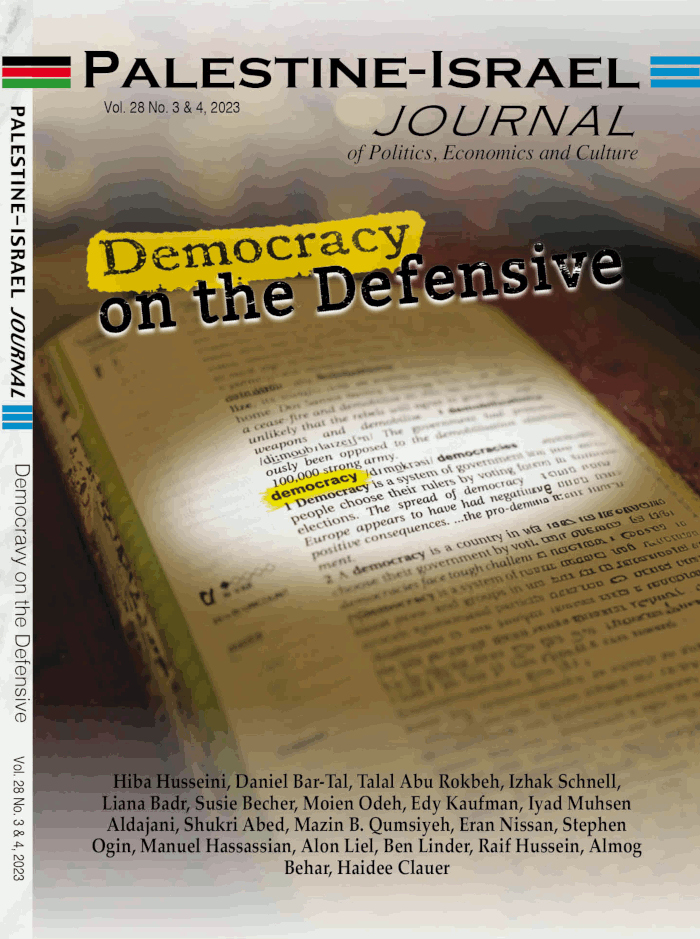As this issue went to print, we found ourselves caught up in the violence of the Gaza war that was triggered by the brutal Hamas attacks on southern Israel on October 7, and the subsequent massive Israeli bombardment of the Gaza Strip. The threats to democracy addressed in this issue are perhaps even more relevant in the shadow of the current fighting, which is primarily killing civilians on both sides. We have therefore chosen to proceed with publication as originally planned, conveying our position on the war in a separate statement which preceded this editorial.
This PIJ issue on democracy was inspired by relevant developments in Israel and Palestine. On the Israeli side, we have witnessed the emergence of a protest movement against the so-called judicial reforms advanced by the Netanyahu government, which are seen by vast numbers of the public as a threat to the democratic nature of the state. On the Palestinian side we have witnessed the emergence of an authoritarian regime that lacks a mandate from the people, because presidential elections have not been held since 2005, and parliamentary elections since 2006.
“Democratia!” (Democracy) is the lead cry of the mass Israeli protest movement against the extreme right-wing government’s plans to undermine the independence of the courts, limit civil liberties, impose Halakhic law, and prepare the ground for annexation of the West Bank. The call for democratic elections in Palestinian society is being raised by a generation deprived of the opportunity to vote and influence its political leadership for almost 20 years, primarily as a result of the failure of Fateh-Hamas reconciliation efforts and obstacles posed by Israel. At the same time, we are witnessing a struggle between liberal democracies and authoritarian, nationalist, ethno-centric regimes around the world.
When the Cold War ended, Frances Fukuyama wrote about The End of History marked by the victory of liberal democracy as a way of life. That clearly is not what happened.
Both the 1948 Israeli Declaration of Independence, and the 1988 Palestinian Declaration of Independence call for the establishment of democratic societies based on equality and human rights. But to what degree have they been realized?
This issue focusses on the challenges to and the need for democracy in both Israeli and Palestinian societies.
It examines whether Israel ever was a genuine democracy and whether it can claim to be a democracy while it continues its occupation of the Palestinian territories and its rule over another people whose basic civil and human rights it violates on a daily basis.
It examines developments that led the Palestinian Authority, originally meant to be the infrastructure upon which an independent Palestine state was to be built, to become more autocratic.
Many Israelis and Palestinians are struggling to ensure that liberal democracy will prevail in their respective societies. Liberal Israelis are confronting an ultraright government that includes racist, messianic elements. Liberal Palestinians are confronting an increasingly authoritarian leadership in the West Bank and a fundamentalist government in Gaza, both of which impose limits on civil liberties.
The Jewish and Palestinian Diasporas have a role to play in supporting liberal Israelis and Palestinians in this struggle, as does the international community. Furthermore, in keeping with our firm belief in and commitment to Jewish-Arab partnership, we see a place for a joint Jewish-Arab struggle to defend democracy between the river and the sea.
A time of crisis is also a time of opportunity. The struggle for democracy continues.

